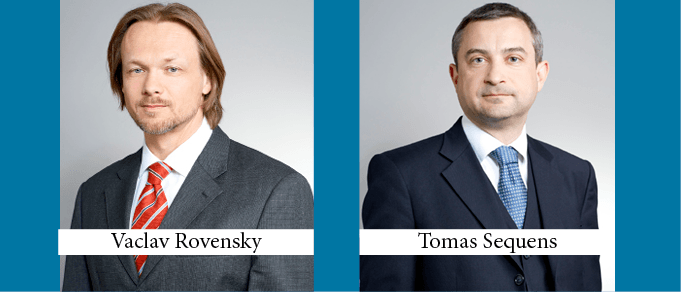Establishing a real and sustainable energy mix is a crucial task for every democratic state. In addition, any energy mix that has been chosen and put in place may change. Indeed, it has to, if the terms and conditions on which it was established undergo important changes. This, of course, applies in the Czech Republic as everywhere else.
The classic Czech energy mix was based on the utilization of domestic sources of energy – namely coal. Starting in the 1950s, the energy mix was modified by the addition of a set of hydropower plants. In 1985, the Dukovany nuclear power plant began operating, followed in 2002 by the Temelin nuclear power plant in South Bohemia.
In 2005, new legislation was adopted that unified the previously fragmented laws on the generation of electricity and heat from renewable energy sources (RES) into a single and comprehensive legal framework. This law was replaced with an entirely new set of regulations in 2013, prepared to be compatible with the respective acquis communautaire. The European Union has committed itself to ensuring that by 2020 at least 20% of the gross final consumption of energy in the EU will come from renewable resources. The European Commission also set as a target for the Czech Republic a 13% share of energy from renewable resources. In 2016, 14.91% of gross final energy consumption in the Czech Republic came from renewable resources.
The actual Czech state energy concept says that, by 2040, the Czech energy mix should be as follows: 46-58% from nuclear power, 18-25% from RES, 11-21% from coal, and 5-15% from natural gas. However, there are new challenges for the Czech Republic arising from the 2016 ratification of the Paris Agreement, in which the EU and its member states undertook to reduce greenhouse gas emissions from their 1990 levels by at least 40% by 2030. This commitment naturally led to the need for further amendments to the actual future development plans of the Czech energy mix.
Currently, two critical issues are currently being discussed in the Czech energy sector:
a) There are plans to significantly enlarge/renew the current Czech nuclear power plants. The situation is complicated by the fact that a previous tender to select a general contractor to build blocks 3 and 4 at the Temelin power plant between 2011 and 2014 was cancelled, leading some to worry that a second tender could lead to the same result. In addition, Czech green NGOs insist that nuclear energy is not suitable for further development due to environmental risks and associated threats arising from the storage of used nuclear fuel (all that despite the fact that nuclear energy is in fact greenhouse-gas-emissions-free).
Still, according to current plans, a new tender for building new blocks at the Dukovany nuclear power plant should be launched in 2020/2021; the construction should be supervised by a new daughter company of CEZ, a.s. (an owner the Dukovany nuclear power plant, which is majority-owned by the Czech state); and the Czech state should provide necessary guarantees (as a second guarantor). Moreover, plans to extend the life of the current blocks in the Dukovany power plant are being seriously considered.
b) A new draft bill which would amend the Czech act for support of RES was announced by the Czech Ministry of Trade and Industry, the concept of which corresponds to the announced aim of achieving a 20.8% share of RES in the Czech energy mix by 2030. Both the draft bill and the announced goal, however, are being broadly criticized as unambitious. Notwithstanding this, it is clear that a substantial change to the current Czech act for support of RES must be made, given that only one new state authorization for building a green power plant has been issued in the Czech Republic since 2018, seriously jeopardizing the fulfilment of any official Czech green energy commitments.
The future development of the Czech energy mix is thus not entirely clear. One can only hope that this uncertainty will be quickly overcome so that energy investors can make responsible decisions about whether and which energy projects they should realize in the Czech Republic in future. This is because planning the construction of new power plants costs both time and money, and prudent businessmen are unlikely to wait years for the necessary energy decisions and legislation to be passed.
By Vaclav Rovensky, Head of Energy Practice, and Tomas Sequens, Counsel, Kocian Solc Balastik
This Article was originally published in Issue 6.4 of the CEE Legal Matters Magazine. If you would like to receive a hard copy of the magazine, you can subscribe here.
